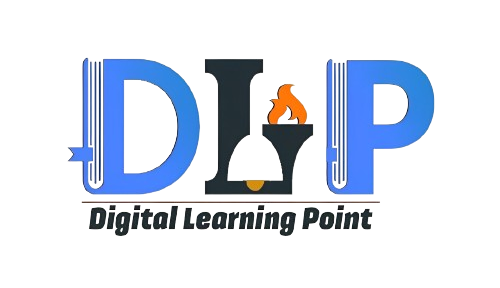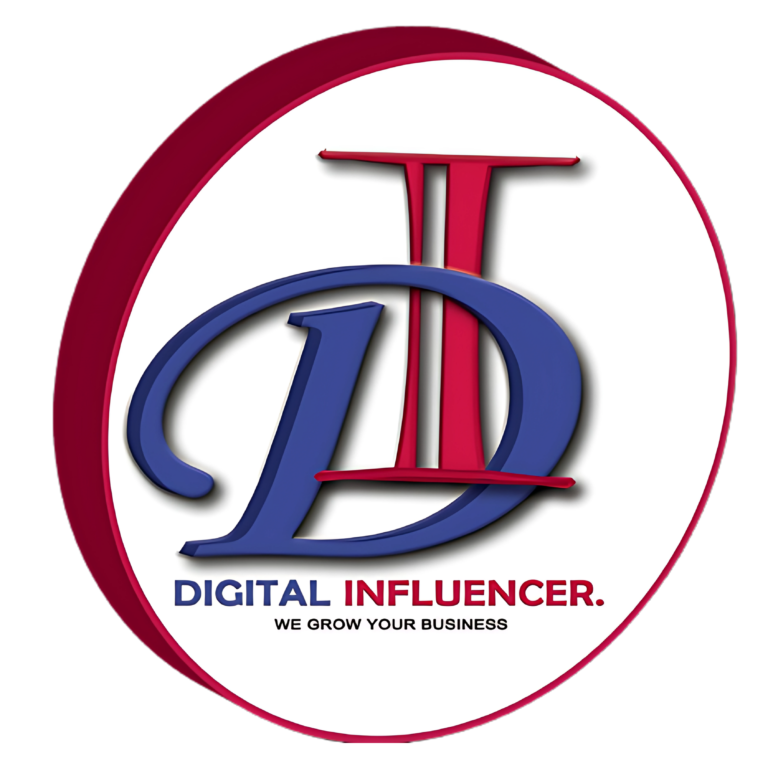A Guide to Marketing Automation: And marketing automation tool

“Marketing automation is no longer a luxury or trend—it’s an essential marketing automation software for businesses seeking to optimize their marketing efforts, enhance customer retention, and drive growth. With the ability to streamline operations, save time on repetitive tasks, and deliver highly personalized experiences, automation platforms are revolutionizing the way businesses approach their marketing strategies. Let’s dive into everything you need to know about marketing automation systems, from their definition and core features to tools, implementation, and best practices.”
What is Marketing Automation?

Marketing automation fundamentally involves leveraging software and tools to streamline and automate repetitive marketing tasks.These tasks can include:
• Email marketing: Sending personalized emails at scale
• Lead generation and nurturing: Tracking leads throughout the buyer journey
• Customer segmentation: Classifying target groups to tailor messaging better
• Social media management: Scheduling posts and analyzing engagement
• Analysis and reporting: Measuring campaign performance
By automating these time-consuming tasks, businesses can enhance efficiency, reduce human error, and provide a more personalized experience for customers. Marketing automation integrates workflows, triggers, actions, and analytics to create seamless, data-driven strategies across multiple channels, including email, social media, and even offline marketing.
How Marketing Automation Works?
Marketing automation platforms gather valuable data from customer behavior, interactions, and demographics. This information can be gathered from multiple touchpoints, including website activity, email engagement, and interactions on social media platforms. Based on this information, businesses can:
1. Segment Customers: Group customers based on behaviors, demographics, or purchasing history to send them the most relevant content.
2. Set Triggers: Automated workflows are triggered by specific customer actions, such as abandoning a cart, clicking a link, or visiting a product page.
3. Send Personalized Content: Once a trigger is activated, automated systems send customized messages or offers that are most relevant to the customer, creating a seamless experience across touchpoints.
4. Continuously Engage: Marketing automation ensures consistent follow-up with leads, guiding them through the sales funnel until they are ready to make a purchase or conversion.
Key Components of Marketing Automation

Here are some core elements of marketing automation:
• Automated Workflows: These allow businesses to set up processes that automatically guide customers through predefined steps based on their actions. For example, an email series sent to a new lead to introduce products and services.
• Lead Scoring and Nurturing: Prioritizing leads based on their engagement, allowing businesses to focus on those more likely to convert while continuing to nurture others.
• Personalized Messaging: Marketing automation enables businesses to send tailored content to customers based on data-driven insights, such as location, preferences, or purchase history.
• Segmentation: The ability to divide customers into meaningful groups ensures that businesses can send relevant content to each audience segment.
• Multi-Channel Automation: Automation works across multiple platforms, such as email, social media, SMS, and more, delivering a unified and consistent customer experience.
Why is Marketing Automation Important?
Marketing automation offers numerous benefits for businesses looking to scale while maintaining high-quality customer interactions.
Here are some of the top advantages:
Saves Time and Resources.
Automation reduces the need for manual tasks, freeing up time for marketing teams to focus on more strategic activities, such as content creation, analytics, and campaign optimization.
Improves Lead Nurturing.
Automating communications means businesses can nurture leads with personalized and timely messages. Unlike static, one-size-fits-all emails, automation tools enable businesses to send customized content based on customer behavior, preferences, and actions, moving prospects smoothly through the sales funnel.
Enhances Customer Experience.
Marketing automation helps businesses deliver highly personalized experiences. By segmenting audiences based on demographics, interests, and behavior, businesses can ensure the right message reaches the right person at the right time. This results in stronger customer relationships, boosting trust and loyalty.
Ensures Consistency.
Automated processes guarantee reliable and prompt communication with customers. Whether it’s a welcome email for new subscribers or a follow-up after a purchase, automation ensures that no opportunity is missed, keeping your business top-of-mind.
Supports Data-Driven Decisions.
Marketing automation tools provide valuable insights into customer behavior, campaign performance, and ROI. Tracking metrics like open rates, click-through rates, and conversions allows businesses to make data-driven decisions and continuously optimize their marketing strategies.
Scalability.
Marketing automation scales alongside your business as it expands. Automation tools can handle large volumes of leads and customers, enabling businesses to continue delivering personalized marketing without needing additional resources.
The Role of AI in Marketing Automation

Combining artificial intelligence (AI) with marketing automation takes it to the next level. AI enhances decision-making by offering deeper insights into customer behavior and real-time campaign optimization. AI-powered automation can predict customer preferences, create content, and personalize communication strategies in ways that were once unattainable, resulting in higher customer satisfaction and improved ROI.
Key Features of Marketing Automation
A variety of features are available across most marketing automation platforms. Here are some of the key ones:
1. Email Marketing Automation
Drip campaigns, behavioral triggers, A/B testing, segmentation, and personalized emails.
2. Lead Scoring and Nurturing
Prioritize leads based on engagement and automate content delivery based on where leads are in the buyer journey.
3. Social Media Automation
Automate post scheduling, content curation, and social media monitoring to manage multiple platforms from a single dashboard.
4. Customer Journey Mapping
Map out key touchpoints and automate communications based on customer behavior to ensure relevant and timely engagement.
Top Marketing Automation Tools

There are numerous Marketing Automation Tool available to help businesses implement their strategies. Here are some of the Marketing Automation Tool:
1. Mail-Chimp
Mailchimp stands out as a highly popular and budget-friendly marketing automation tool, frequently praised for its top performance, particularly among small businesses.
Mail-Chimp perfects email strategies down to the last detail, and this is exactly its core strength. So, if you have a huge list, don’t need too many additional automation processes, and are working on a tight budget, this could be the tool for you. Currently, Mailchimp offers a comprehensive range of automation tools designed for seamless functionality and effortless integration with various platforms.
2. Marketo (Adobe)
An AI-powered marketing automation platform that helps marketers and sellers scale personalized buyer engagement and increase pipeline and sales.
Key features include:
• Customer Segmentation and Profiles – Allows businesses to automatically capture and continuously update customer profiles, helping create targeted audience segments.
•Omnichannel Engagement – Automates across channels such as email, web, mobile, chat, webinars, digital advertising, and more.
•Tailored Content – Uses AI to create content tailored to your audience.
•Campaign Analytics and Tracking – Create custom reports and gain deep insights into your campaigns.
3. Active Campaign
Active Campaign is an intelligent marketing automation platform designed to create seamless customer experiences that not only delight your audience but also drive significant growth. The platform offers a wide variety of automation triggers, actions, and conditional routing, along with an advanced AI-powered drag-and-drop builder, enabling users to optimize their marketing efforts effectively. Active Campaign covers all the essential aspects of digital marketing, including email marketing, SMS marketing, social media engagement, ad audience targeting, and form building.
4. Get Response
Get Response is a marketing automation platform originally focused on email marketing. But this clever marketing automation software has a much more agile and integrated automation setup. It allows you to organize your workflows using intuitive drag-and-drop menus based on conditions, actions, and filters.
5. Hootsuite
Hootsuite is a user-friendly social media marketing tool and one of the most widely used automation platforms globally.
It takes a little learning to get the most out of Hootsuite, but if you put in the time, you’ll reap big rewards. You can integrate all your social media platforms into Hootsuite, gain deep insights into your audience, and plan a variety of targeted content.
Implementing Marketing Automation For effective implementation of marketing automation, consider these essential steps:
1.Define Your Marketing Goals: Identify the key objectives you want to achieve with marketing automation.
2.Choose the Right Platform: Select a tool that fits your business size, goals, and budget.
3.Segment Your Audience: Use automation tools to categorize your audience based on demographics and behavior.
4.Create Automated Workflows: Set up workflows to automate communication at different stages of the customer journey.
5.Test and Optimize: Continuously test different elements of your campaigns and optimize them for better performance.
6.Monitor Results and Scale: Use analytics to track results, refine your approach, and scale your efforts as needed.
Challenges of Marketing Automation.
While marketing automation offers significant benefits, there are some challenges to consider:
•Complexity: Setting up workflows can be complicated, especially for beginners.
•Data Management: Accurate, up-to-date customer data is essential for effective segmentation and personalization.
•Pricing: Advanced platforms can be expensive, which may be a barrier for smaller businesses.
•Content Creation: Even automated workflows need engaging, high-quality content to be effective.
Why Marketing Automation is a Game-Changer?

Marketing automation revolutionizes business strategies by optimizing marketing processes, conserving time, and enhancing customer retention. By implementing marketing automation tools, companies can nurture leads, create personalized experiences, and drive growth—all while optimizing their resources.
Whether you’re a small business just getting started or a large enterprise looking to scale your operations, marketing automation is the key to transforming how you connect with customers. By automating repetitive tasks and personalizing your communications, you can improve your bottom line and ensure long-term success.
Now is the time to embrace marketing automation……



Pingback: 9 Black Friday Marketing Tips for 2025: Boost Sales Fast